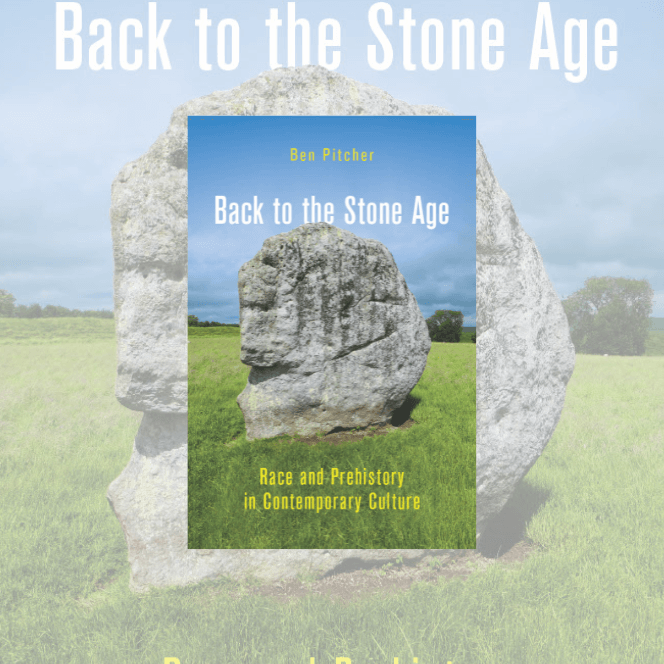Social scientists are on the whole pretty good at being sceptical of finding answers in human nature. When a social scientist is confidently informed that childcare is best left to women or that sexuality is hard-wired into our biology, we will patiently show our interlocutor through the door marked ‘social construction’. Many of us would argue that the whole point that social science exists at all is to open up to contestation interpretations of the world that would otherwise be consigned to the realm of undisputed biological fact.
Yet a funny thing happens if we go back far enough in time. For as much as social scientists are invested in problematizing the distinction between nature and nurture, we will nevertheless often hold onto the notion that at some point in time the causalities of socialisation do give way to interior qualities that are inherent to us as a species. Social scientists tend to be materialists and our insights and observations are rightly not premised on an idealist denial of our biology, but our understanding of the relationship between biology and culture, so well developed in our understanding of the present, often runs into problems when applied to the distant human past.
This is not surprising. It is a perspective that is common to our culture more generally that there was a moment way back in time where a switch was flicked and the instinctive imperatives of nature were replaced or overlaid with the demands of culture. This is an abiding mythology of human distinctiveness (and of course why we so often have trouble acknowledging the social formations of other animals). Our social constructions are assumed to build on top of a biological foundation. According to such perspectives, nature comes first, and civilization later. Whether for good or for ill, it is our belief that we have developed from natural beings to social beings and our social characteristics now have the upper hand.
The issue with this developmental thinking is that it retains what it appears to replace. So often social scientists will implicitly presume that social norms, even of the most repressive kind, function to taper the baser, instinctive, or intrinsic aspects of an unregulated human nature. Many of us participate in progressive struggles to establish laws and patterns of thought and behaviour against what we perceive to be innate human characteristics. It is therefore by no means uncommon for social scientists to hold onto a fairly Hobbesian view of human nature. In doing so, social scientists appear to establish our purview over the social, but in fact we delegate an ultimate causal authority to an idea of what went before it. Though we think we have now covered over human nature with social norms, we continue to treat that human nature as foundational. In doing so, human nature’s underlying qualities are always potentially emergent, ready to overrule our efforts to tame or rise above it.
In my book Back to the Stone Age: Race and Prehistory in Contemporary Culture, I suggest that human prehistory has been attributed a particular significance in animating the problems of our time. In the context of a present that is widely understood to be environmentally unsustainable, where global heating is threatening humanity’s own future survival, and where capitalism and technology seem to be making things worse and not better, we are looking to the distant human past for clues about how to live better and more sustainable lives. We are increasingly looking backwards to go forwards, searching for answers to questions about who we are, where we came from and what we are like.
This turn to prehistory poses an obvious epistemological problem for social scientists if we continue to leave unquestioned our working theories of human nature. Contemporary investments in an evolutionary or biological conception of the human potentially leave social scientists without authority and with nothing to say. There are then of course plenty of other voices who are more than willing to step in and declare with confidence what Homo sapiens are ‘really like’. As social scientists know very well, the existing state of things has always been shored up by appeals to an intrinsic human nature.
In researching and writing Back to the Stone Age, I have learned from biologists, geneticists, and other scientists that our working ideas about an intrinsic human nature are erroneous and unjustified. The temporal schism we can assume between human biology and human society does not actually exist. From the very start, the biological has always been intertwined with the social. The inventions of culture (from clothing and stone tools to shipping containers and Weibo) are just as much a context for our biological expression as our biology is for our social expression. In addition, the stories that get told about human prehistory are often no more than just stories, ripe for revision and reinterpretation and not written in stone.
If a biological human nature cannot ever be taken as read but as always shaped by social forces, then our social scientific insights about social constructedness remain as valid for the distant human past as they do for the present day. The category of human nature can accordingly be opened up to permanent contestation, for we have always been simultaneously cultural and biological. Deeply held ideas about intrinsic human characteristics – from our propensity to conflict and violence to the gendered division of care – begin to dissolve as fundamental strata of human nature. We do not need to take anyone’s definition of human nature for granted and there is no prehistoric foundation to who we are, no destiny to live out, and no human essence to rise above or return to. What we are has always depended in significant part on what we want for ourselves and who we can imagine ourselves to be.
Ben Pitcher is Reader in the School of Social Sciences at the University of Westminster. He is the author of The Politics of Multiculturalism (2009) and Consuming Race (2014). Back to the Stone Age: Race and Prehistory in Contemporary Culture (December 2022, McGill-Queen’s University Press) explores how popular engagements with the prehistoric provide revealing insights into the cultural politics of race. Twitter: @Pitcher_Ben
Webpage: https://www.benpitcher.com/


